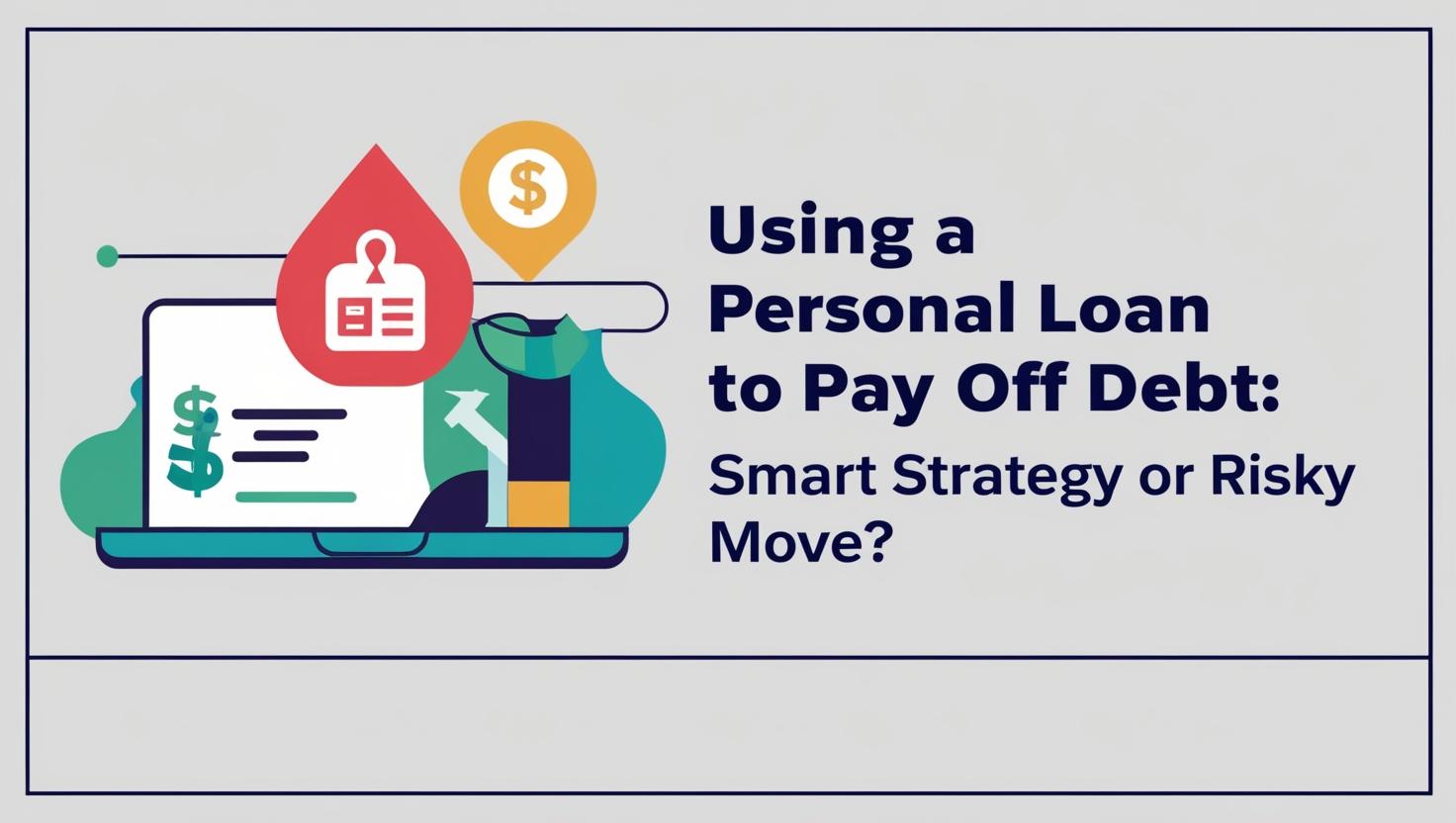If you want to boost your finances this year, this article is a must read. can seem overwhelming. Simple steps can lead to financial stability and security. Good financial management reduces stress and boosts your confidence.
Being proactive with your finances means making smart money choices. This approach leads to a better financial future. Start by understanding the value of financial planning and how it helps you manage your money wisely.

Following the right financial tips can improve your finances and help you reach your goals. Whether you aim to pay off debt, save money, or invest, managing your finances is the first step to success.
Key Takeaways
- Implementing financial management tips can help boost your finances
- Effective financial planning is essential for achieving financial stability
- Proactive financial management can reduce stress and increase confidence
- Smart financial decisions can create a brighter financial future
- Boost your finances by making informed decisions about your money
Understanding Your Current Financial Position
To get better with money, start by knowing where you stand financially. Collect all your financial data, like income statements and bank accounts. This helps you spot where you can manage your money better.
Figuring out your net worth is key. It’s your total assets minus your total liabilities. Assets are things like savings and property. Liabilities are debts and loans. Knowing your net worth helps you make smart money choices.
Calculating Your Net Worth
This step gives you a clear view of your finances. You might find high-interest debt that’s holding you back. Use tips like debt consolidation to tackle it and boost your financial health.
Analyzing Your Income Sources
Understanding where your money comes from is also vital. Look at your salary, investments, and side jobs. Knowing your income sources helps you plan better and improve your finances.
Identifying Financial Weaknesses
Spotting financial weaknesses is important too. Look at your spending and find ways to save. Use tips to manage your money better. This way, you can achieve financial stability and security.
Creating a Comprehensive Budget Strategy
Creating a budget is key to financial stability and success. Effective budgeting techniques help manage money, prioritize spending, and make smart financial choices. With financial planning tools like apps and spreadsheets, you can tailor a budget to your needs and goals.
A good budget covers all income and expenses, including fixed costs, debt, and savings. It’s vital to regularly check and tweak your budget to keep it working well. The 50/30/20 rule is a popular method. It suggests spending 50% on needs, 30% on wants, and 20% on savings and debt.
When making a budget, think about long-term goals like retirement or a house down payment. Using financial planning tools and strategies in your budget helps reach these goals. To stay on track, track your spending, avoid buying on impulse, and set achievable financial targets.
- Track expenses to understand where money is being spent
- Avoid impulse purchases to stay within budget
- Set realistic financial goals and regularly review progress
By following these tips and using effective budgeting techniques and financial planning tools, you can craft a detailed budget strategy. This will help you achieve financial success and stability.
Smart Debt Management Techniques
Effective financial management tips are key to better financial health. Managing debt is a big part of this. Debt can feel overwhelming, but the right strategies can help you take back control and improve your financial stability.
First, understanding the different types of debt is important. Then, prioritize high-interest debt. This includes credit card balances, personal loans, or other debts with high interest rates. Focusing on these debts first can save you money on interest and boost your financial health.
Prioritizing High-Interest Debt
- Make a list of all debts, including balances and interest rates
- Prioritize debts with the highest interest rates
- Consider consolidating debts into a single, lower-interest loan
Debt consolidation can be a smart move. It simplifies payments and can lower interest rates. By merging multiple debts into one, you make one monthly payment. This makes managing your finances easier and helps improve your financial health.
Building a Debt Repayment Timeline
Creating a realistic debt repayment timeline is vital for financial success. Set specific goals, like paying off a certain amount within a time frame. Then, make a plan to reach those goals. Following financial management tips and sticking to your plan can lead to better financial health and stability in the long run.
Emergency Fund Development
Having a solid emergency fund is key to financial planning. It acts as a safety net for unexpected expenses, reducing stress and preventing debt. To build one, use money saving strategies like setting aside a fixed amount monthly. Also, track your progress with financial planning tools.
A good emergency fund should cover 3-6 months of living costs. This can change based on your job security and family size. Start by cutting back on unnecessary expenses and save that money for your fund.

- Setting realistic savings goals
- Automating your savings
- Keeping your emergency fund separate from your everyday spending money
Follow these tips and use money saving strategies and financial planning tools to build a strong emergency fund. This will give you peace of mind and financial stability.
Remember, an emergency fund is not a luxury, it’s a necessity. It’s a vital part of a complete financial plan. It helps you handle life’s surprises with confidence.
Practical Ways to Boost Your Finances Today
To improve your finances, start now. Cutting down on unnecessary spending is key. Look at your budget and find places to save. Try to lower bills by canceling unused subscriptions or getting better deals from providers.
Boosting your income is also vital. You can earn more by getting a side job, selling things you no longer need, or finding new ways to make money. This way, you’re not just relying on one job.
Reducing Monthly Expenses
- Cancel subscription services you don’t use
- Negotiate a better rate with your service providers
- Lower your bills by reducing energy consumption
Increasing Income Streams
- Take on a side job or freelance work
- Sell unwanted items or assets
- Pursue alternative sources of revenue, such as investing in stocks or real estate
By using these strategies, you can make your finances better. Always keep your financial goals in mind and stick to your plans.
Investment Portfolio Diversification
To increase wealth through smart investing, diversifying your portfolio is key. This means spreading your investments across various asset classes. This way, you can lower risks and aim for higher returns. By following smart investing advice, you can build a balanced portfolio that fits your financial goals.
A diversified portfolio usually has both low-risk and high-risk investments. These can include stocks, bonds, and real estate. This mix helps protect your portfolio from market ups and downs. For instance, if stocks drop, bonds can help keep your portfolio stable.

- Reduced risk: Spreading investments across different asset classes can lessen the impact of market swings.
- Increased chance for long-term growth: A diversified portfolio can help you navigate market changes and reach your long-term goals.
- Improved returns: Investing in a variety of asset classes can lead to higher returns over time compared to focusing on one area.
To start diversifying your portfolio, follow these steps:
- Know your financial goals and how much risk you can handle.
- Plan a diversified investment strategy.
- Keep an eye on and tweak your portfolio as needed.
By taking these steps and getting smart investing advice, you can build a diversified portfolio. This will help you increase wealth in the long run.
| Asset Class | Risk Level | Potential Returns |
|---|---|---|
| Stocks | High | High |
| Bonds | Low | Low |
| Real Estate | Medium | Medium |
Maximizing Retirement Account Contributions
Retirement savings are key to financial planning. Making the most of retirement accounts can greatly boost your wealth. Using financial planning tools helps make smart choices about your retirement accounts. This way, you can optimize your contributions for long-term financial security.
There are many retirement account options to explore.
Traditional IRA Benefits
include tax-deductible contributions and tax-deferred growth. These make Traditional IRAs appealing to many. On the other hand,
401(k) Optimization Strategies
focus on maximizing employer matching and catch-up contributions for those over 50. Also,
Roth IRA Considerations
involve weighing tax-free growth and withdrawals against upfront tax on contributions.
To maximize retirement account contributions, create a detailed financial plan. This plan should include strategies to increase wealth. By doing this, you can secure a financially stable future and maximize your retirement savings.
Being proactive in retirement planning and using financial tools can lead to long-term success. It helps increase your wealth over time.
Tax Planning and Optimization
Effective tax planning is key to financial management tips for both individuals and businesses. It helps them improve financial health. By understanding tax implications, they can lower their tax bills and use all available deductions and credits.
Using tax-advantaged savings like 401(k) or IRA accounts is a smart move. These accounts help save for retirement while lowering taxable income. You can also deduct charitable donations, mortgage interest, and medical expenses to cut down on taxes.
It’s also vital to keep up with tax law changes. This way, you can grab new tax savings and avoid traps. A tax pro or financial advisor can help craft a detailed tax plan. This plan fits with your financial management tips and boosts your improve financial health.
- Maximize tax-advantaged savings vehicles
- Claim deductions for charitable donations and mortgage interest
- Stay informed about changes in tax laws and regulations
By following these financial management tips and keeping up with tax strategies, you can lower your taxes. This helps you reach your financial goals and secure a stable future.
Insurance Coverage Assessment
Having the right insurance is key to protect your money and health. It’s important to check your current policies and make changes if needed. This can be tough, but tools for financial planning can make it easier.
When looking at your insurance, think about these things:
- Life insurance: Make sure it covers your family if something unexpected happens.
- Property protection: Check your home and car insurance to see if they cover enough damage or loss.
- Health insurance: Look at your health plan and think about how to get better coverage.
By carefully checking and improving your insurance, you can make your finances stronger. Financial planning tools can guide you to the right choices. This way, you can protect your money and reach your financial goals.
Remember, checking your insurance is a big part of planning your finances. By focusing on this, you can keep your money safe and achieve success in the long run.
Digital Tools for Financial Management
Effective financial planning tools are key to financial success. Digital technology has made many tools available. These tools help manage expenses, investments, and savings easily.
Popular digital tools include budgeting apps, investment trackers, and automated savers. They give a clear view of your finances. For example, apps like Mint and You Need a Budget (YNAB) track expenses and send bill reminders.
Benefits of Digital Financial Tools
- Streamlined financial processes
- Improved budgeting techniques
- Enhanced investment tracking
- Automated savings solutions
Using these tools helps create solid financial plans. This leads to better financial results. As technology grows, we’ll see more tools to help manage money and reach goals.

| Tool | Features |
|---|---|
| Mint | Expense tracking, bill reminders, budgeting |
| YNAB | Expense tracking, budgeting, investment tracking |
Building Multiple Income Streams
To increase wealth and achieve financial stability, it’s key to diversify your income. Having many income streams can help you boost your finances. It also reduces your dependence on just one income source.
Some ways to create multiple income streams include:
- Starting a side hustle, such as freelancing or consulting
- Investing in dividend-paying stocks or real estate investment trusts (REITs)
- Creating and selling digital products, such as ebooks or courses
Building multiple income streams can lower your financial risk. It also boosts your chance for long-term wealth growth. Always research and talk to a financial advisor before investing.
With the right strategy and mindset, you can build a diverse income portfolio. This will help you reach your financial goals and boost your finances over time.
| Income Stream | Potential Income | Risk Level |
|---|---|---|
| Dividend-paying stocks | $1,000 – $5,000 per year | Medium |
| Real estate investment trusts (REITs) | $5,000 – $20,000 per year | High |
| Digital products | $1,000 – $10,000 per year | Low |
Setting Financial Goals and Milestones
Setting clear financial goals is key to success. By setting specific, measurable, and achievable goals, you can map out your financial future. It’s important to regularly check and update your goals as your life changes. This keeps your goals in line with your current priorities.
Good investing advice is to focus on both short-term and long-term goals. Short-term goals might be saving for a house or paying off debt. Long-term goals could be saving for retirement or your child’s education. Balancing these goals helps you create a detailed financial plan that meets your needs.
Short-term Financial Objectives
- Creating a budget and tracking expenses
- Building an emergency fund
- Paying off high-interest debt
Long-term Wealth Building Plans
- Investing in a retirement account
- Developing a diversified investment portfolio
- Building multiple income streams
By following these tips and advice, you can set yourself up for long-term financial success. Regularly reviewing and adjusting your goals helps you stay on track and reach your desired outcomes.
Conclusion: Your Path to Financial Success
The path to financial success is clear. You’ve learned 15 essential tasks to get there. By knowing your finances, making a budget, and managing debt, you can boost your finances and improve your financial health a lot.
Building an emergency fund, diversifying investments, and saving for retirement are key. Using digital tools and finding new income sources can also help. These steps are vital for building wealth over time.
Stay focused and keep track of your progress. Apply the strategies from this guide consistently. With hard work and a step-by-step plan, you can change your financial situation. Begin your journey today and look forward to the rewards.
FAQ
What are the 15 essential tasks to boost my finances and achieve financial success?
The 15 essential tasks include understanding your financial position and creating a budget. You should manage your debt, build an emergency fund, and find ways to increase your income. Diversify your investments, maximize retirement contributions, and optimize your taxes. Assess your insurance, use digital tools, and build multiple income streams. Set financial goals and milestones.
How can I calculate my net worth and analyze my income sources?
To calculate your net worth, add up your assets and subtract your liabilities. Analyze your income by identifying all sources, such as your job, side hustles, and investments.
What are the key elements of an effective budgeting strategy?
An effective budget involves tracking expenses and categorizing spending. Set limits for each category and find ways to cut unnecessary costs. Regularly review and adjust your budget as your finances change.
How can I effectively manage and reduce my debt?
Prioritize high-interest debt and explore consolidation options. Create a realistic repayment plan. Focus on the most expensive debt first and find ways to reduce interest rates.
Why is it important to have an emergency fund, and how can I build one?
An emergency fund provides financial stability. Aim to save 3-6 months’ expenses in a savings account. Contribute regularly, even a small amount, to build your fund.
What are some practical ways to boost my finances in the short term?
Reduce monthly expenses and increase income streams. Optimize bill payments for discounts and align due dates. Take on a side gig or freelance to boost your income.
How can I diversify my investment portfolio?
Diversify by investing in different asset classes, like stocks, bonds, and real estate. This reduces risk and can lead to consistent growth. Consider your risk tolerance and goals when allocating investments.
What are the benefits of maximizing my retirement account contributions?
Maximize contributions to IRAs, 401(k)s, and Roth IRAs for long-term benefits. These accounts offer tax advantages, employer matching, and compound interest for wealth accumulation.
How can I optimize my tax planning to improve my financial health?
Optimize taxes by using deductions and credits, timing income and expenses, and planning for long-term tax implications. Proper planning can help you keep more money and improve your financial health.
What should I consider when assessing and optimizing my insurance coverage?
Review your life, property, and health insurance to ensure adequate protection. Adjust coverage limits and explore cost-saving options. Ensure coverage aligns with your current needs and financial situation.
What digital tools can I use to streamline my financial management?
Use budgeting apps, investment tracking platforms, and automated savings solutions. These tools simplify tracking expenses, monitoring investments, and automating savings, helping you make informed decisions.
How can I build multiple income streams to increase my wealth?
Diversify your income by starting a side business, renting out property, or investing in passive income assets. Monetize a hobby or skill to increase your income streams.
How can I set meaningful financial goals and track my progress?
Set clear, achievable goals and milestones for short-term and long-term wealth. Regularly review and adjust your goals to stay motivated and accountable.
Free Tools That Can Help In Your 2025 Financial To-Do List: Budgeting and Expense Tracking
- Mint – Track your expenses, set budgets, and manage bills in one place.
- EveryDollar – A user-friendly budgeting app based on zero-based budgeting.
- PocketGuard – Helps you keep tabs on your spending and see how much you can spend daily.
Emergency Fund Savings
- Chime – Offers automatic savings and spending round-ups.
- Digit – Automates small, daily savings based on your spending habits.
- Marcus by Goldman Sachs – Provides a high-yield savings account to grow your emergency fund.
Investment Planning
- Morningstar – Research investments and get tools to diversify your portfolio.
- Personal Capital – Tracks your net worth and investments for free.
- Yahoo Finance – Stay updated with market trends and track stocks.
Retirement Savings
- Fidelity Retirement Score – Assess how well-prepared you are for retirement.
- Vanguard Retirement Tools – Free calculators and resources for retirement planning.
- Betterment – Offers free planning tools to optimize your retirement savings.
Debt Management
- Undebt.it – Create and track your debt repayment plan using the snowball method.
- Credit Karma – Monitor your credit score and get tailored debt management advice.
- NerdWallet Debt Tracker – Helps you organize and pay off debt efficiently.
Tax Planning
- TurboTax TaxCaster – A free tax calculator for estimating your tax refund.
- IRS Free File – File your federal taxes online for free (if eligible).
- H&R Block Free Online – File simple tax returns for free.
Insurance Reviews
- Policygenius – Compare policies for life, health, and other insurance needs.
- GoodRx – Find discounts on prescriptions and compare health insurance plans.
Estate Planning
- DoYourOwnWill – Create a basic will for free.
- Trust & Will – Offers a free trial for creating legal estate documents.
- FreeWill – Build a free will or plan your estate online.
Financial Education and News
- Investopedia – Offers free guides, tutorials, and courses on financial planning.
- Khan Academy – Personal Finance – Free lessons on saving, budgeting, and investing.







2 responses to “15 Essential Tasks to Boost Your Finances and Achieve Financial Success This Year”
Understanding your net worth is a powerful first step in financial planning. It’s all about knowing where you stand so you can make smarter choices and boost your financial future
Proactive financial management really does make a difference! By taking control of your money and setting clear goals, you’re already on the path to a more secure and confident financial life.